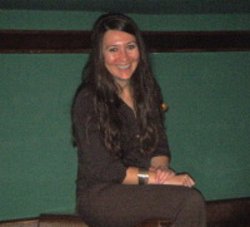Banu Bargu
Assistant Professor in Political Science, The New School, New York. Banu Bargu holds a Ph.D. from Cornell University and her dissertation Martyrs of Hunger: Sovereignty in the Age of Sacrifice was awarded Janice N. & Milton J. Mannesmann prize for best dissertation. Her research interests include classical and modern political theory, critical theory, state theory, sovereignty, anarchy, political economy, politics in the Middle East, modern forms of political modtand and revolution.
At the moment professor Bargu is working on a project that examines the implications of modern forms of political self-sacrifice (hunger strikes, suicide bombs, selv-immolation) on political theory with special regards to issues of sovereignty, political order and violence. Banu Bargu has published several articles in international journals and is currently in the act of finishing book project titled Human Weapons: Biopolitics and the Death Fast.
Abstract:
In recent decades, we have witnessed the emergence of new forms of warfare in which the human body has been utilized as a novel and lethal weapon. The performance of self-destructive violence, especially in its more aggressive forms directed at the enemy, has gathered much scholarly attention. Suicide attackers have become symbolic (if dystopic) figures of this new warfare, raging across various troubled geographies, not distinguishing between combatants and noncombatants, and drawing upon new and increasingly theologized forms of identification and allegiance. My purpose in this paper is to draw attention to the inverse figure of the “human weapon”; namely, the “human shield.” This figure is the exemplar of a similarly biopoliticized utilization of the body in warfare; however, its purpose is not to destroy but to protect others. The human shield suggests the possibility of asserting simple, unarmed existence, with all of its sacrificial potential, in order to stage a political intervention against war itself. The human shield (similar to the human weapon) is a potent political figure that utilizes the plenitude of “mere life,” but sets this potential to work for contrasting aims. My paper attempts to unpack and explore this figure of the human shield, drawing upon contemporary theories of biopolitics and resistance.
